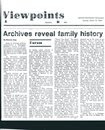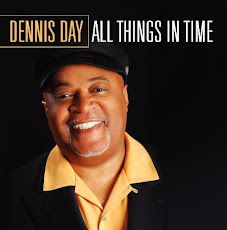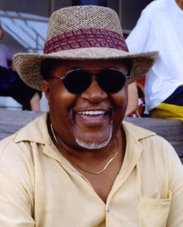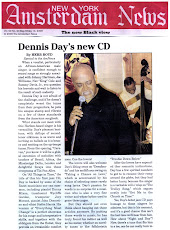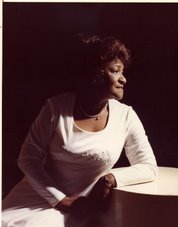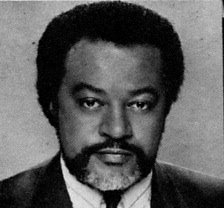This You Tube video clip offers a broader context of Rev.Wright's post 911 sermon than that being shown on Fox TV and other networks that created a firestorm of controversy. Excerpts from other Wright sermons are also being aired out of context. For my commentary,please see my blog post, April 4, Television, Race and Obama .
Tuesday, April 8, 2008
Friday, April 4, 2008
TELEVISION, RACE, AND OBAMA
As the nation commemorates the fortieth anniversary of Dr. King’s death on April 4 and the publication of the landmark Kerner Commission Report on race in America, several questions must be raised. How effective is mass media in breaching the racial divide in America? Is today’s American television journalism part of the problem or part of the solution for bridging America’s racial divide?
In this YouTube age, have mainstream media outlets gone too far in relying on user-generated content – images and sound bites that virtually anyone with a digital camera can post, selectively edit, and manipulate? What is the obligation of editorial staffs within large media conglomerates? Should not media submissions require the same rigorous journalistic standards as traditional print journalism, ensuring that news is reported fairly and accurately to the public?
A blatant example of television’s editorial abuses involved Reverend Jeremiah Wright’s controversial remarks, edited from several sermons preached at Trinity United Church of Christ in Chicago, posted on You Tube, and broadcast ad infinitum on virtually every major television network and cable outlet without benefit of their full context. The networks’ selective editorial use of the Wright clips raises serious concerns regarding television’s responsibility to the viewer.
Ultimately any opportunity for meaningful public discourse is suppressed when television executives neglect to exercise sound editorial standards. By refusing to print or broadcast Wright’s full sermons, relevant material was in fact censored, denying viewers opportunity to form intelligent opinions or engage in further inquiry to become better informed on the merits of the issues presented as fact. Instead, viewers are positioned to internalize the networks’ preferred narrative spin, which often corresponds to the larger political views held by their corporate executives and is far from fair and balanced reporting.
Such reporting must be called out for what it is – propaganda disguised as news. Despite the fact that a story’s broader context is often needed for accurate reporting with journalistic integrity, the increasing frequency with which use of raw private video content is now seen as news prompts further ethical concerns. There is a growing trend for mass media to use video snippets, cloaked as hard news but designed to shape public opinion, as the basis for today’s fast-breaking news stories.
There is a place for eye-witness digital accounts of natural disasters, accidents, or crime scenes shot by ordinary citizens, but in a high-stakes national political contest the presentation of excerpted statements broadcast out of context from their larger complex narratives can be too easily manipulated or exploited for political advantage. Wright’s most controversial statements were aired repeatedly, seeping deep into America’s collective conscience long enough to seriously taint Obama’s post-racial credentials and plummeting his standing in national polls.
Instead of taking the high road, the unspoken conservative media subtext played out as this headline by default: “Birds of a Feather: Trinity Church’s Black Militant Chicago Pastor and His Most Famous Spiritual Disciple, Presidential Candidate Barack Obama Damn Nation.” Wright’s rhetorical flourishes when critiqued out of context can easily be interpreted as unpatriotic and blasphemous. However, the prophetic preaching tradition compels a prospective convert to experience the gospel message in its totality, with all of its nuance, tone, cadence, and body language, mediated by the listener’s predisposition to discern spiritual and biblical truth spoken to power.
Openness to the gospel narrative does not make African American church goers gullible sycophants, incapable of distinguishing good from evil or the sacred from the profane. Christians are challenged to distinguish between human government and God’s kingdom. Such preaching is part of a rich linguistic endowment innate to black oral tradition. Although the term Black Liberation Theology was eventually mentioned to describe Wright’s teachings at the Trinity United Church of Christ, on-air discussions did little to inform viewers about the beliefs and theological tenets of this theology.
Wounded politically, Barack Obama boldly tackled the issue of race head-on in an intimate, authoritative speech on March 18 offered balance, historical perspective, and keen insight into one of the nation’s most intractable problems. Obama took the initiative to push us toward a national dialogue that the mainstream media has been hesitant to engage.
The Wright controversy provided a rare window of opportunity for media and journalists to provide a much-needed analysis and historical perspective for understanding the racial divide – a chance to lead toward solutions. Yet the media in this instance as in too many others, chose to provide too little information too late and thus remains part of the problem.
In this YouTube age, have mainstream media outlets gone too far in relying on user-generated content – images and sound bites that virtually anyone with a digital camera can post, selectively edit, and manipulate? What is the obligation of editorial staffs within large media conglomerates? Should not media submissions require the same rigorous journalistic standards as traditional print journalism, ensuring that news is reported fairly and accurately to the public?
A blatant example of television’s editorial abuses involved Reverend Jeremiah Wright’s controversial remarks, edited from several sermons preached at Trinity United Church of Christ in Chicago, posted on You Tube, and broadcast ad infinitum on virtually every major television network and cable outlet without benefit of their full context. The networks’ selective editorial use of the Wright clips raises serious concerns regarding television’s responsibility to the viewer.
Ultimately any opportunity for meaningful public discourse is suppressed when television executives neglect to exercise sound editorial standards. By refusing to print or broadcast Wright’s full sermons, relevant material was in fact censored, denying viewers opportunity to form intelligent opinions or engage in further inquiry to become better informed on the merits of the issues presented as fact. Instead, viewers are positioned to internalize the networks’ preferred narrative spin, which often corresponds to the larger political views held by their corporate executives and is far from fair and balanced reporting.
Such reporting must be called out for what it is – propaganda disguised as news. Despite the fact that a story’s broader context is often needed for accurate reporting with journalistic integrity, the increasing frequency with which use of raw private video content is now seen as news prompts further ethical concerns. There is a growing trend for mass media to use video snippets, cloaked as hard news but designed to shape public opinion, as the basis for today’s fast-breaking news stories.
There is a place for eye-witness digital accounts of natural disasters, accidents, or crime scenes shot by ordinary citizens, but in a high-stakes national political contest the presentation of excerpted statements broadcast out of context from their larger complex narratives can be too easily manipulated or exploited for political advantage. Wright’s most controversial statements were aired repeatedly, seeping deep into America’s collective conscience long enough to seriously taint Obama’s post-racial credentials and plummeting his standing in national polls.
Instead of taking the high road, the unspoken conservative media subtext played out as this headline by default: “Birds of a Feather: Trinity Church’s Black Militant Chicago Pastor and His Most Famous Spiritual Disciple, Presidential Candidate Barack Obama Damn Nation.” Wright’s rhetorical flourishes when critiqued out of context can easily be interpreted as unpatriotic and blasphemous. However, the prophetic preaching tradition compels a prospective convert to experience the gospel message in its totality, with all of its nuance, tone, cadence, and body language, mediated by the listener’s predisposition to discern spiritual and biblical truth spoken to power.
Openness to the gospel narrative does not make African American church goers gullible sycophants, incapable of distinguishing good from evil or the sacred from the profane. Christians are challenged to distinguish between human government and God’s kingdom. Such preaching is part of a rich linguistic endowment innate to black oral tradition. Although the term Black Liberation Theology was eventually mentioned to describe Wright’s teachings at the Trinity United Church of Christ, on-air discussions did little to inform viewers about the beliefs and theological tenets of this theology.
Wounded politically, Barack Obama boldly tackled the issue of race head-on in an intimate, authoritative speech on March 18 offered balance, historical perspective, and keen insight into one of the nation’s most intractable problems. Obama took the initiative to push us toward a national dialogue that the mainstream media has been hesitant to engage.
The Wright controversy provided a rare window of opportunity for media and journalists to provide a much-needed analysis and historical perspective for understanding the racial divide – a chance to lead toward solutions. Yet the media in this instance as in too many others, chose to provide too little information too late and thus remains part of the problem.
Subscribe to:
Comments (Atom)

